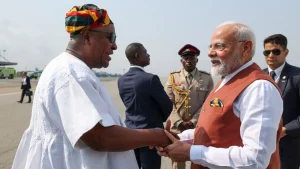External Affairs Minister S. Jaishankar, in an interview with DD India, emphasized that India should not expect “smooth sailing” in ties with its neighbours but has actively worked to build “collective interest” to maintain stable relationships despite political changes. He asserted that working with India brings clear benefits, while not cooperating comes at a cost—highlighting that most neighbouring nations understand this, though Pakistan remains an exception due to its military-driven hostility. Addressing global dynamics, Jaishankar said India has developed strategic ties with the U.S. despite its unpredictability, and has reinforced border infrastructure to deal with China’s aggression post-Galwan clash. He praised India’s rescue operations like Operation Ganga and Operation Sindhu, and spoke of growing partnerships with the Gulf, ASEAN, and Indo-Pacific regions. On internal politics of neighbours like Nepal and Sri Lanka, he noted India’s diplomatic consistency regardless of regime change. Referring to Pakistan-sponsored terrorism, Jaishankar called 26/11 a turning point, and cited decisive actions such as the 2016 Uri strike, 2019 Balakot airstrike, and Operation Sindoor as proof of India’s proactive defence doctrine. He said PM Modi embodies India’s new confidence and self-belief, and highlighted a long-term vision of positioning India as a key player in a multipolar world where major powers compete and collaborate. The Modi government, he added, has transformed India’s foreign policy with resilience, clarity, and boldness.



















